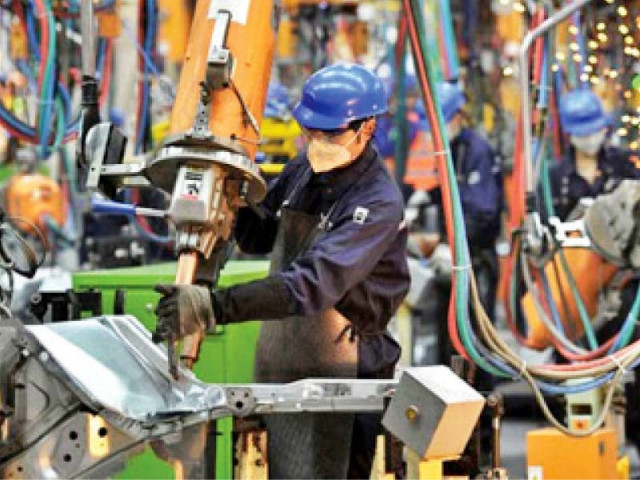FPCCI stresses continued growth of LSM
Official says it will help revive economy, create jobs

Federation of Pakistan Chambers of Commerce and Industry (FPCCI) has said that a positive growth in large-scale manufacturing (LSM) will help achieve the annual economic growth target, besides creating jobs if the trend continues in coming months.
According to data, LSM output recorded a significant growth of 7.65% in September, besides reporting a 4.8% growth during the first quarter of the current fiscal year.
While addressing a delegation of various industrial sectors, FPCCI President Mian Anjum Nisar said, “Growth of the industry has shown a ray of hope for the revival of economic activities in the country.” Expressing concern, he added that the data of October 2020 might be critical to sustain the momentum of industrial production during the second wave of Covid-19 in the country.
He stated that during the year 2019-20, LSM output had dropped alarmingly by 10.17% year-on-year. The industrial production after suffering from the damage inflicted by the coronavirus pandemic mainly in the construction, sugar, automobile, and pharmaceutical sectors was now clearly reflecting a revival in economic activities in Pakistan.
For the current fiscal year, the government had set the economic growth target at 2.1%, which will improve in the current economic situation but is not enough to create jobs for a growing population.
Nisar said the significant decline in interest rates and reduction in duties on raw materials are expected to further spur economic activities in the current fiscal year, as manufacturing activity showed that more than half the sub-sectors in LSM rose in September.
He highlighted that the growth has now broken a cycle of constant contraction in past one year. “Large businesses had been bearing the brunt of high interest rate, issues of the Federal Board of Revenue (FBR) and high energy prices,” he added.
The FPCCI chief called for out-of-the-box solutions for economic growth, as the Covid-19 outbreak had adversely impacted the world’s economy as well as Pakistan’s trade and industrial sectors.
Nisar suggested that the government should formulate long-term and consistent policies for the revival of industry and considerable improvement in exports, as contrary to regional countries, Pakistan’s exports have remained stagnant.
“Some of the impediments to industrial growth include the cost of production, poor governance, obsolete technology, lower productivity, lack of competitiveness, supply constraints, and energy issues,” he added.
Published in The Express Tribune, November 22nd, 2020.
Like Business on Facebook, follow @TribuneBiz on Twitter to stay informed and join in the conversation.



















COMMENTS
Comments are moderated and generally will be posted if they are on-topic and not abusive.
For more information, please see our Comments FAQ